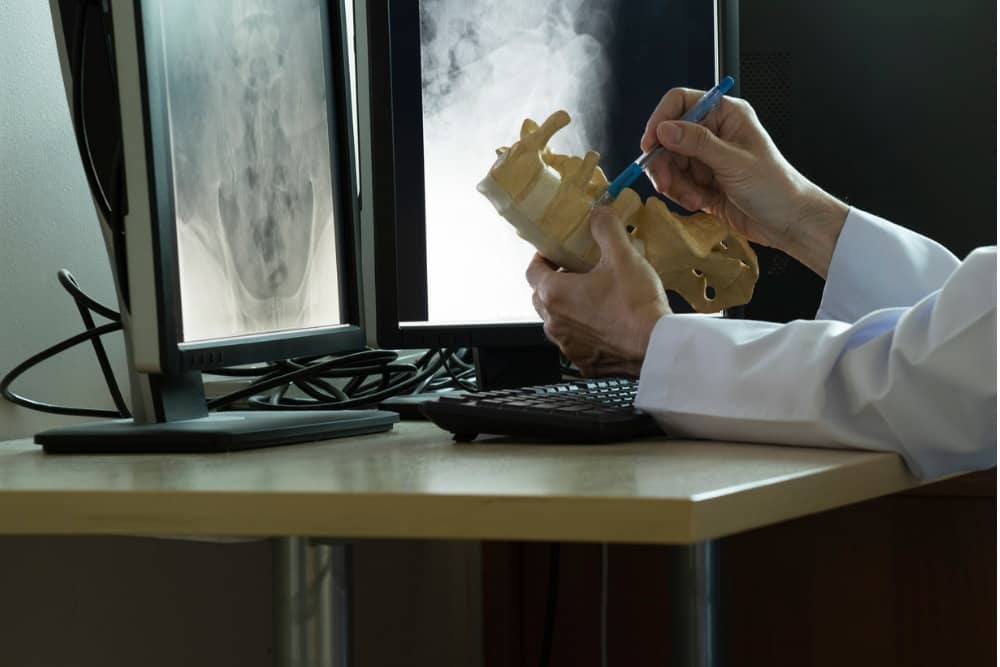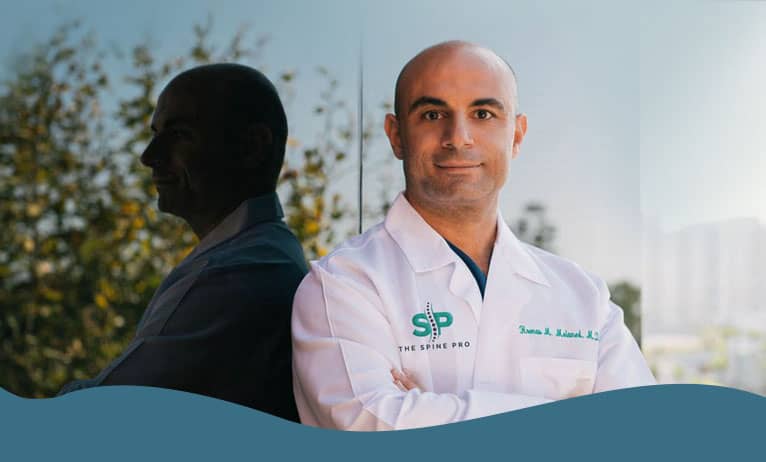
What is a Collapsed Disc?
A collapsed disc is an intervertebral disc that has lost its structural integrity. Unlike your vertebrae which are made of bone, your 23 intervertebral discs are designed to be softer and serve as shock absorbers for the back. As we age, the soft center of the intervertebral discs dehydrates and become firmer. Due to everyday stresses, fissures and tears can develop that can burst from the fibrous outer ring resulting in a herniated disc. The lost content may compress nerves adjacent to the disc and near two adjacent vertebrae. The disc shortens which alters the stability of the spine and reduces its ability to protect the spine from physical.
What is the leading cause of a collapsed disc?
Degenerative disc disease is the primary suspect for a collapsed disc. From the age of forty on, almost all of us begin to experience the effects of degenerative disc disease. Many will have no symptoms, but for some, intermittent acute pain may develop into the chronic pain of osteoarthritis.
People who work for professions that place repetitive strain on the neck and lower back, or require persistent heavy lifting may have higher risks for collapsed discs. Injuries from auto accidents or falls can also cause disc failure.
What are the symptoms of a collapsed disc?
- Pain in your lower back (lumbar) or tingling pain or numbness along your hips, thighs and legs
- Persistent pain in your neck (cervical) or pain when turning your neck, or tingling pain in your arms and fingers
- Tightness and difficulty bending or turning your head
- Unusual weakness in your arms or legs
- Incontinence
How is a collapsed disc diagnosed?
X-rays are often the first option since it is an excellent tool for ruling out infection, tumors, fractures or congenital anomalies. Myelograms may be used to assess the status of the spinal cord and nerve roots. Computerized tomography (CT) scans provide a multi-dimensional view of your spine. Magnetic resonance imaging (MRI) is useful for identifying herniated and slipped discs and adjacent nerve systems. Electromyograms give your surgeon information about the status of your spine’s nerve systems, pinpointing faulty nerve signals.
What are the typical treatment options for a collapsed disc?
For most patients, the reason they are visiting a doctor is the darn back pain that won’t go away. If your pain is moderate, your doctor may suggest over-the-counter pain medications. Since inflammation is almost always a part of back pain, the non-steroidal anti-inflammatory family is often recommended. They include aspirin, Motrin and Advil. There are also several prescription anti-inflammatory medications.
To avoid the risk of addiction, Dr. Melamed does not recommend opioid-derived pain medication for pain relief. Instead, he views his patients through a holistic lens and tries to understand their lifestyles from a 360-degree perspective. This helps him develop customized pain relief strategies that combine the best of western medicine with the most effective treatments from integrative medicine to naturally control pain. A good example of an alternative treatment is the Chinese medical discipline of acupuncture, which can be an effective system for relieving pain that does not lead to unwanted addictions. To reduce moderate pain, he may suggest using a transcutaneous electric nerve stimulator (TENS). For chronic pain due to a collapsed disc, he may recommend epidural steroids.
To decompress back pain naturally, Dr. Melamed may suggest postural physical therapy, water therapy, Pilates, yoga and even an ancient martial arts discipline called TaiChi.
A few patients may not respond to conservative treatments and may require surgery. Dr. Melamed may suggest additional tests. He will work closely with them to choose the most appropriate surgical strategy to relieve their back pain. All of Dr. Melamed’s microdecompression surgical treatments are opioid-free.
Take action to fight your back pain, today.
Click on the “Make An Appointment” button at the top of this page, or call Dr. Melamed’s office for more information. There is no better time than today to start the journey to a life without back pain. Call us at 310-928-2769.



